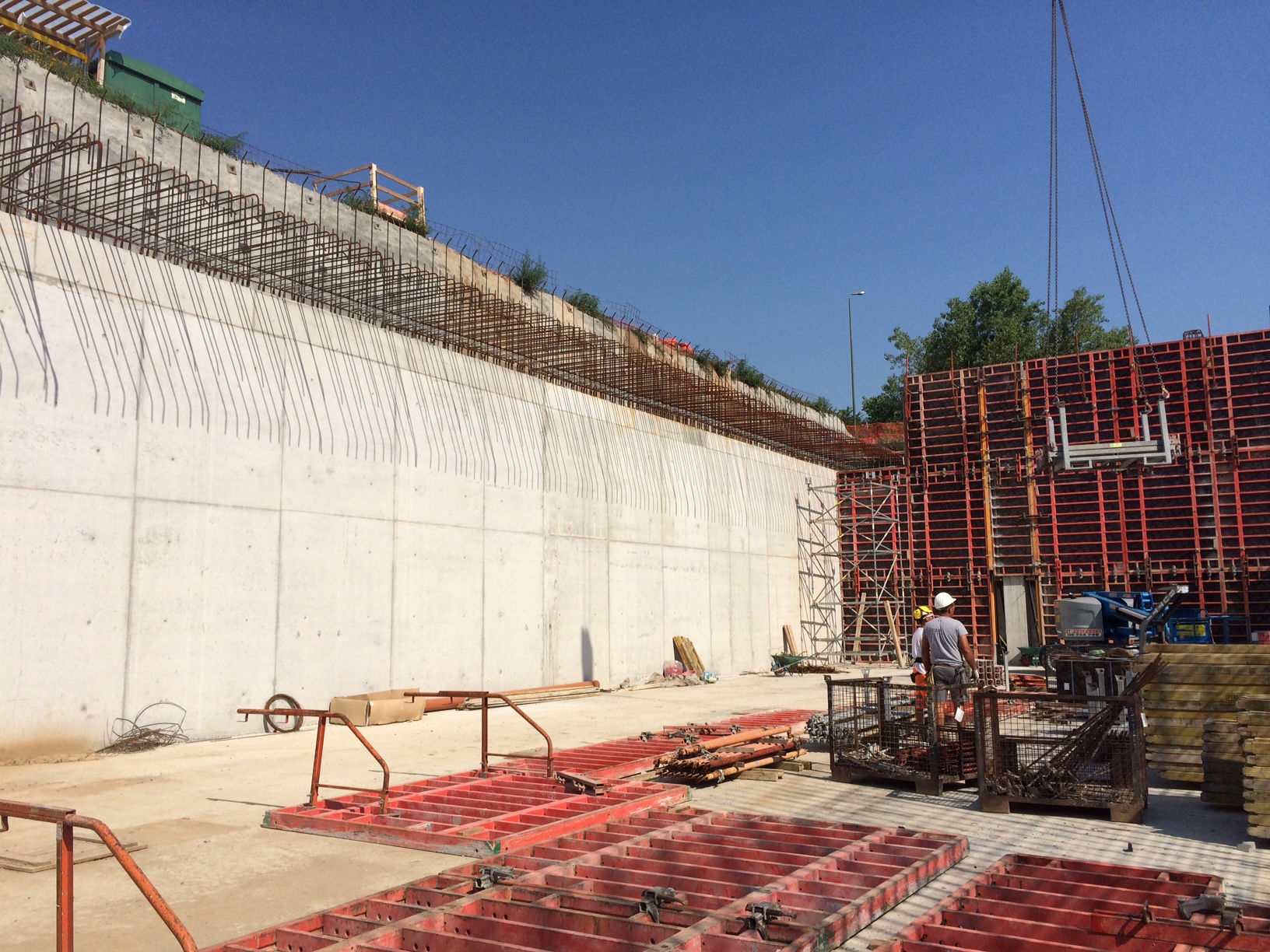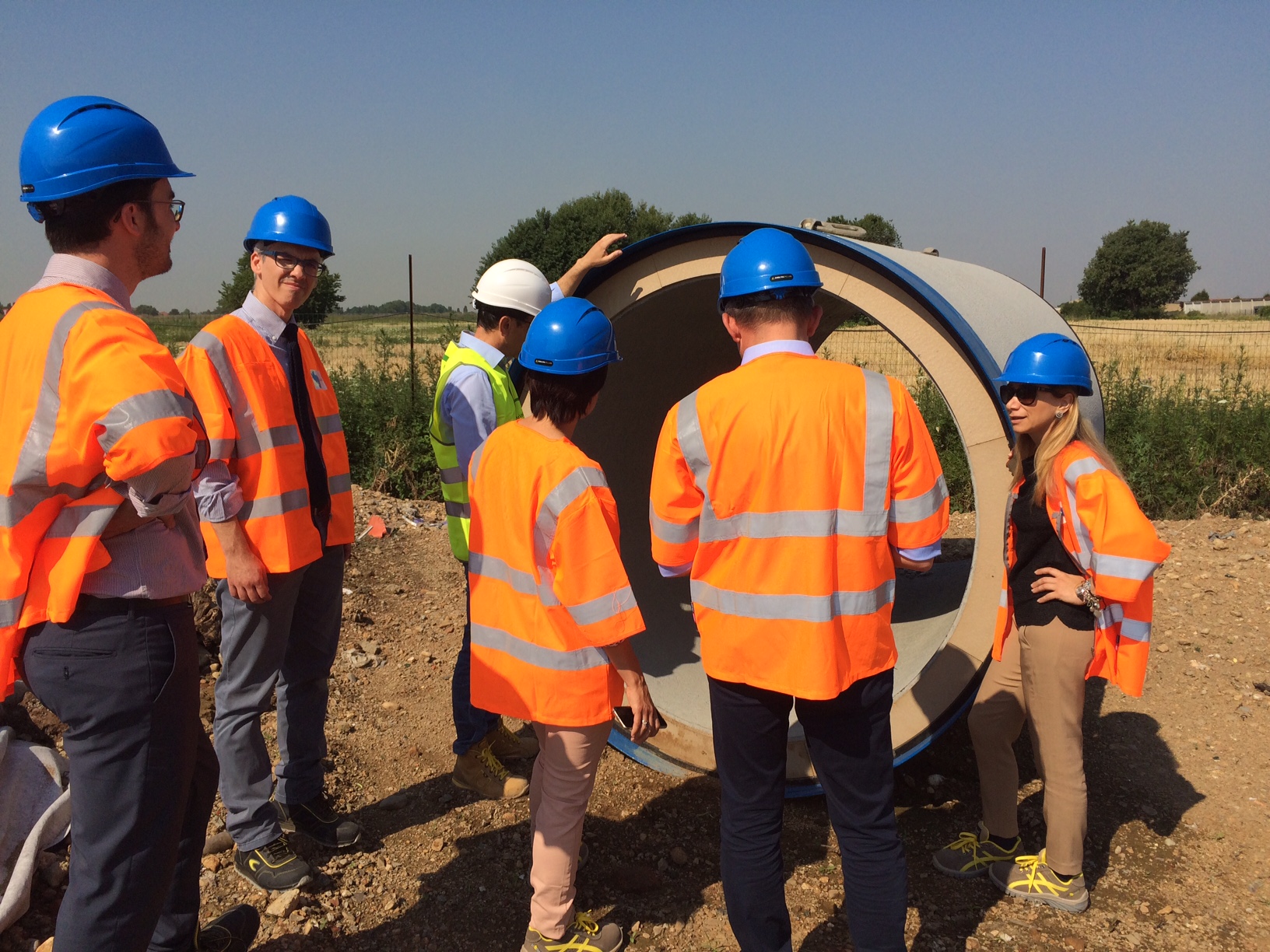Flexible financing helps Italian water operators upgrade leaky reservoirs and fix old pipes.
It hardly rained in Rome during spring and summer this year. The low rainfall and the high temperatures meant less water for Romans, who feared the kind of water rationing already implemented in several towns in central Italy.
Every summer Italy is hit by a heatwave. The warm weather leads to a drought, which causes endless problems. Farms, grain, vegetables, fruit and livestock suffer. And with the heat, the risk of fires is extremely high.
Summer heatwaves aren’t the only reason for the water woes. Antiquated water networks cause an average 35 percent of water in the pipes to be lost before it reaches Italian homes. Upgrades are needed urgently, but small Italian water companies struggle to get financing.
The European Investment Bank is giving Italian water companies an opportunity to fix the problem. "Thanks to the backing of the Investment Plan for Europe, we’re able to finance directly small and medium water companies," says Despina Tomadaki, the EIB loan officer in charge of this operation.
Small companies, big investments
The Bank is using a programme loan to offer EUR 200 million for waterworks, sewage systems and wastewater treatment in Italy. That will provide loans for four to eight water projects worth EUR 30 million to EUR 100 million each. The EIB usually finances half of the project, so the loan for each operation will be EUR 15 million to EUR 50 million.
“Small water utilities are considered too high risk for direct financing,” says Tomadaki, "but the Investment Plan for Europe makes the financing possible. The Bank has been very active in the water sector in Italy, but this is the first operation of this kind targeting small and medium-size water utilities."
Integrated water services in Italy are regulated by the state and organized around 64 service areas. Over 2,700 operators provide services to around 7,700 municipalities. A few large players serve around 50% of the total population. However, the majority of the operators are small, so they are considered a risky investment and it is hard for them to qualify for loans.
The investment gap between the work needed and the work being done in the Italian water sector has been growing for years. It is around EUR 3 billion a year today. The EIB programme will help reduce this gap.
BrianzAcque is the first water operator to have applied for the EIB loan. The company wants to upgrade integrated water services in the province of Monza and Brianza, in northwestern Italy. The company will use the money to improve its water and wastewater infrastructure.

Some regions of Italy are especially struggling to get financing. "The programme loan will target those companies in central and south Italy where investment needs are greatest," says Patricia Castellarnau, the EIB economist dealing with the new operation.
Tomadaki and Castellarnau say it is very important that the EIB can now help small water utilities in such a direct, flexible and fast way. In the past, the EIB had helped small water utilities indirectly, through credit lines provided by the local banks.
"We foresee benefits not only for the inhabitants, like improved services’ quality and coverage, but also for the environment, with reduced pollution caused by discharging untreated effluents in water bodies," Castellarnau says. "We expect better quality of surface and groundwater resources, less network losses, but also increasing resilience to the effects of climate change."
The project is expected to support around 2,000 new jobs, further helping the local population and businesses.

Fix the leaks
Italian water operators interested in an EIB loan can send their investment plans to the EIB. The plans can be difficult to prepare, but the EIB’s advisory hub can help improve the project’s chances.
“The hub provides ad hoc advisory support to specific needs, both in the project preparation and implementation. It will help the water operators identify new opportunities, for instance regarding Climate Change Resilience and Vulnerability Risk Assessment,” says Castellarnau.
Most of the EIB programme loan projects are expected to be carried out from 2017 to 2021.
Castellarnau and Tomadaki will attend a water conference in Livorno on 11-13 September to discuss EIB water activity in Europe and to present the services offered by the advisory hub. Small and medium-sized water utilities are invited to attend the conference and ask questions on financing and advisory services.
